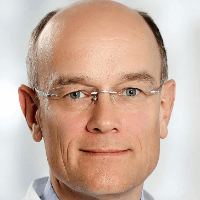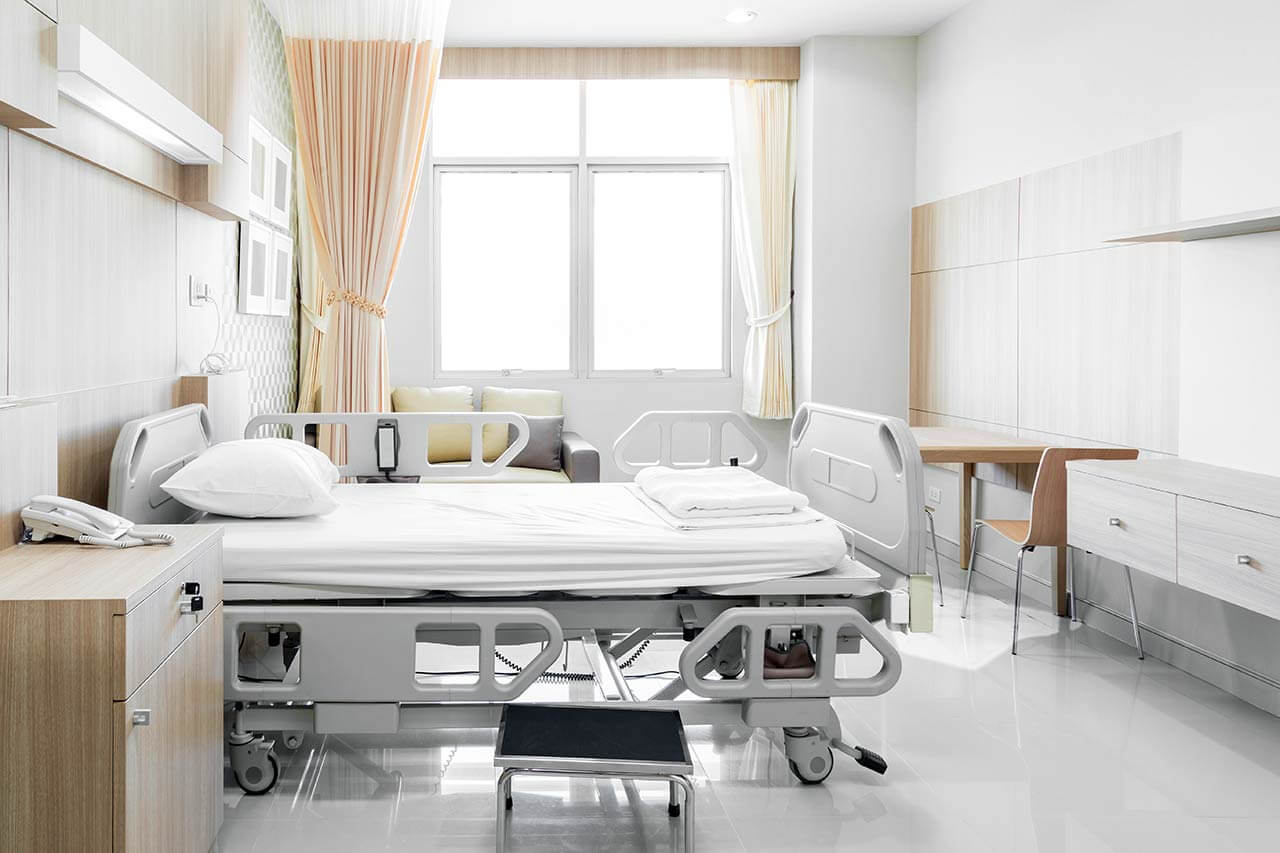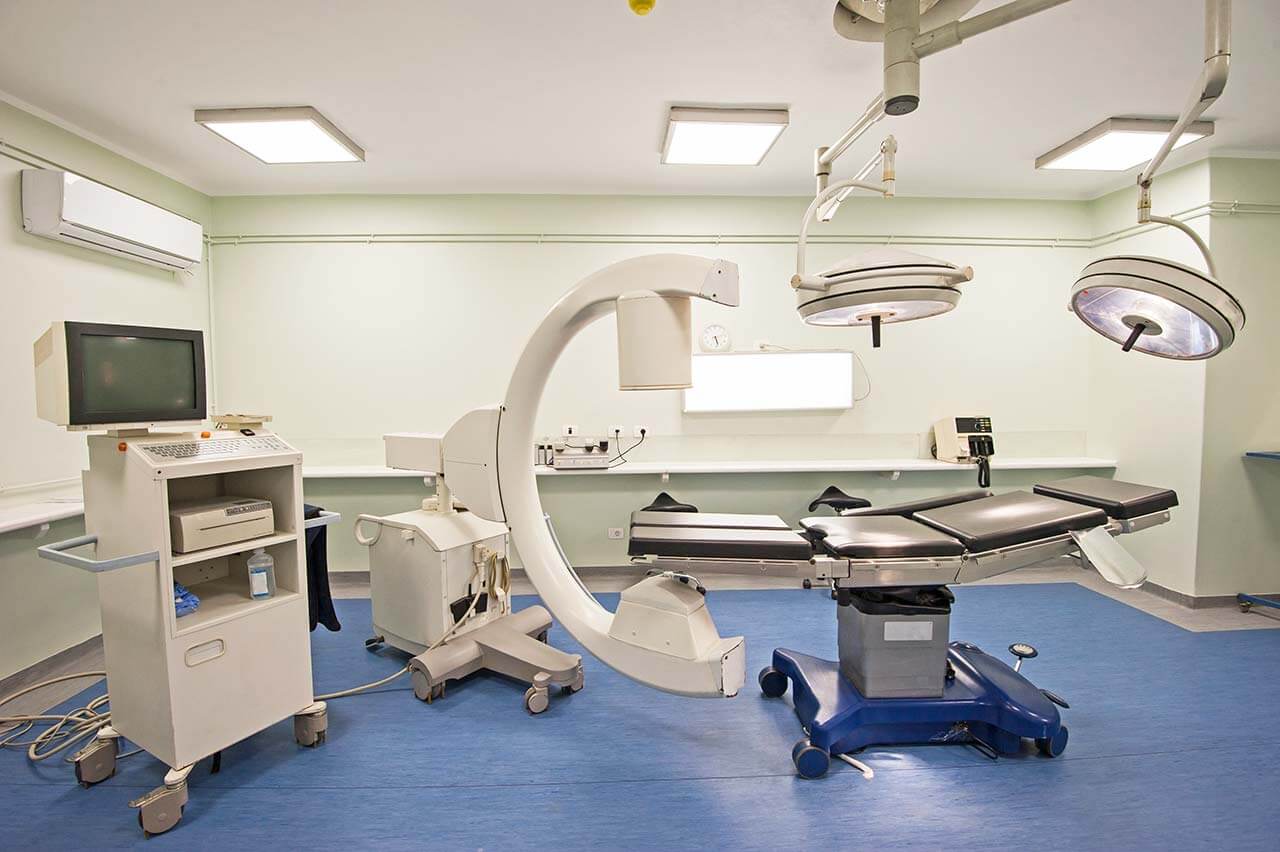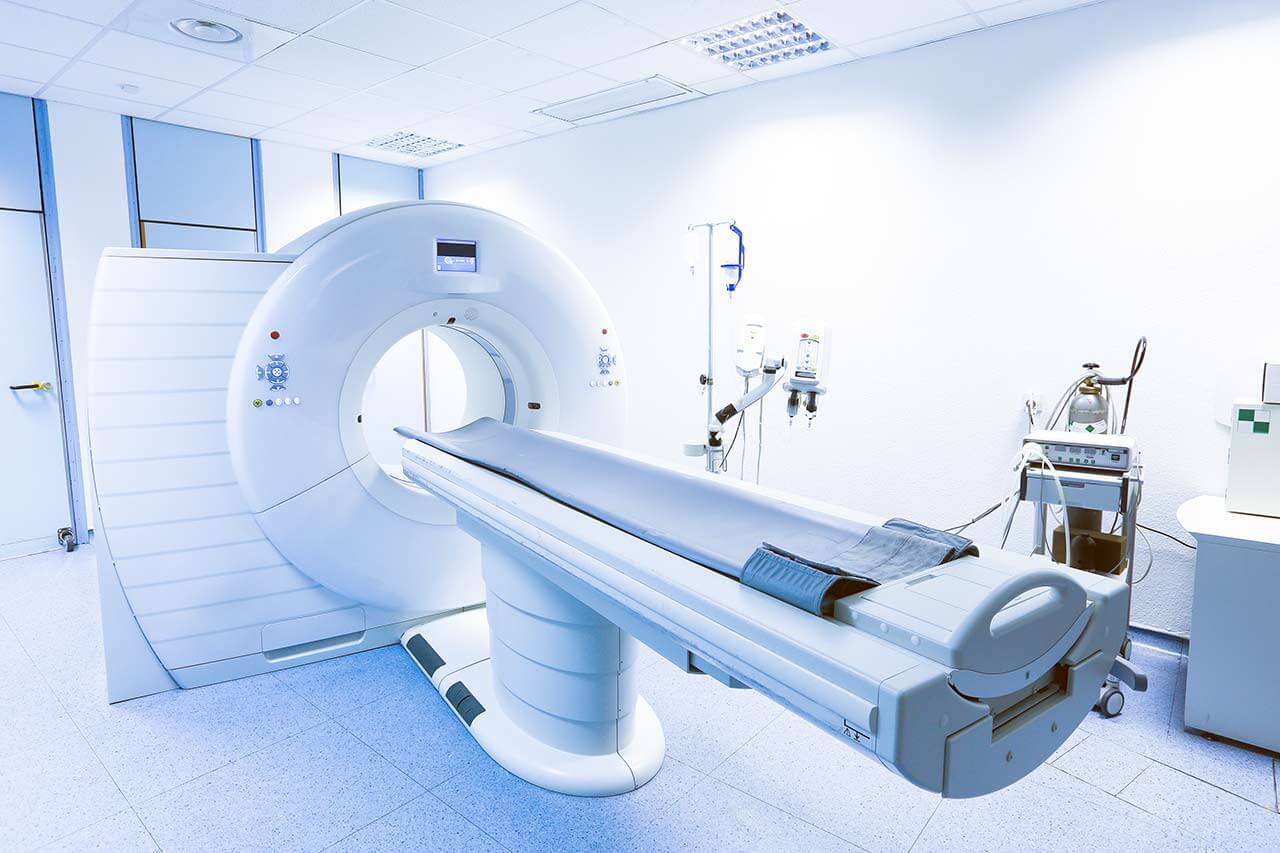
The program includes:
- Initial presentation in the clinic
- clinical history taking
- physical examination
- review of medical records
- laboratory tests:
- complete blood count
- general urine analysis
- biochemical analysis of blood
- TSH-basal, fT3, fT4
- tumor markers (AFP, CEA, СА-19-9, CA 72-4)
- indicators of inflammation (CRP, ESR)
- indicators blood coagulation
- barium study of the esophagus
- abdominal ultrasound
- gastroscopy with biopsy
- analysis of hp (helicobacter pylori)
- CT/MRI abdomen
- endoscopic dilatation and stents implantation
- symptomatic treatment
- control examinations
- the cost of essential medicines and materials
- nursing services
- nutrition recommendations
- full hospital accommodation
- explanation of future recommendations
Required documents
- Medical records
- Esophagogastroduodenoscopy (EGD) (if available)
Service
You may also book:
 BookingHealth Price from:
BookingHealth Price from:
About the department
The Department of Gastroenterology, Hepatology and Infectology at the Helios Hospital Berlin-Buch offers the widest range of diagnostic examinations and treatments for patients with diseases of the gastrointestinal tract, liver, biliary tract, as well as infectious diseases. The department operates the specialized Endoscopy Center, which serves for diagnostic and therapeutic procedures. There is also the Laboratory for Functional Gastrointestinal Diagnostics. The modern technical base and the exceptional professionalism of doctors make it possible to guarantee an optimal result for each patient. The department is headed by Prof. Dr. med. Frank Kolligs.
In the field of gastroenterology, the department provides the diagnostics and treatment of acute and chronic diseases of the esophagus, stomach, small and large intestine, and pancreas. Particular attention is paid to the treatment of patients with inflammatory bowel diseases and patients with abdominal malignancies.
Great attention is paid to the treatment of benign and malignant liver diseases. An innovative technique for the treatment of hepatological pathologies is transjugular intrahepatic portosystemic shunting. The department's specialists are fluent in this treatment technique, as well as in many others.
An important aspect of the department's work is the medical care of patients with infectious lesions of the gastrointestinal tract and liver (for example, infectious diarrheal diseases, recurrent bacterial infections, hepatitis A, B, C, D, E).
The department specializes in the diagnostics and treatment of the following diseases:
- Gastroenterology
- Swallowing disorders and inflammatory processes in the esophagus
- Reflux esophagitis and Barrett's esophagus
- Gastritis
- Peptic ulcer of the stomach and duodenum
- Chronic inflammatory bowel diseases (for example, Crohn's disease and ulcerative colitis)
- Gastritis and irritable bowel syndrome
- Food intolerance (for example, coeliac disease)
- Acute and chronic pancreatic inflammation (pancreatitis)
- Pancreatic cystic diseases
- Gallbladder and bile duct diseases (for example, gallstone disease)
- Precancerous conditions (for example, stomach and intestinal polyps)
- Hereditary cancers of the digestive tract
- Esophageal and stomach cancer
- Colorectal cancer
- Pancreatic cancer
- Hepatology
- Hepatitis (viral and autoimmune)
- Cholestasis
- Hepatic steatosis
- Cystic liver diseases (for example, echinococcosis)
- Benign liver tumors (for example, adenomas, focal nodular hyperplasia)
- Malignant liver tumors (hepatocellular and cholangiocellular carcinoma)
- Cirrhosis
- Infectology
- Gastrointestinal infections (for example, infectious diarrheal diseases, recurrent bacterial infections)
- Liver infections (for example, hepatitis A, B, C, D, E)
- Other diseases
The department's range of medical services includes:
- Diagnostic endoscopic procedures
- Gastroscopy
- Colonoscopy
- Sigmoidoscopy, rectoscopy, proctoscopy
- Endoscopic retrograde cholangiopancreatography
- Cholangioscopy
- Small bowel endoscopy (balloon endoscopy, capsular endoscopy)
- Endosonography of the esophagus, stomach, rectum, pancreas and bile ducts
- Therapeutic endoscopic procedures
- Endoscopic removal of polyps and tumors at the initial stages
- Endoscopic treatment of varicose veins of the esophagus and stomach
- Endoscopic treatment of gastrointestinal haemorrhages
- Removal and electrohydraulic lithotripsy of calculi of bile ducts and pancreas
- Endoscopic treatment of digestive tract and biliary tract stenosis (dilatation, stent implantation)
- Radiofrequency ablation for bile duct cancer
- Radiofrequency ablation for the treatment of Barrett's esophagus
- Endosonography-guided interventions (puncture, drainage, stent implantation)
- Treatment of tumors and vascular malformations using argon plasma coagulation
- Placement of feeding probes (percutaneous endoscopic gastrostomy, including suturing and the use of special cylinders)
- Functional diagnostics
- Ultrasound techniques
- B-mode ultrasonography
- Color Doppler ultrasonography
- Contrast-enhanced ultrasonography
- Ultrasound-guided puncture
- Ultrasound-guided puncture for abdominal fluid accumulation
- Ultrasound-guided abscess drainage
- Ph-metry
- Manometry
- Hydrogen breath test
- Ultrasound techniques
- Other diagnostic and therapeutic options
Curriculum vitae
Prof. Dr. med. Frank Kolligs heads the Department of Gastroenterology, Hepatology and Infectology at the Helios Hospital Berlin-Buch. Prior to this, he worked as Professor at the University Hospital of Ludwig Maximilian University of Munich. In addition, he held the position of Senior Physician and Head of the Multidisciplinary Bowel Cancer Center. Prof. Kolligs is a recognized expert in the treatment of colorectal cancer and liver cancer. He is actively engaged in research activities, and also participates in conferences of specialized societies. The doctor was also engaged in scientific activities at the University of Marburg and the University of Michigan in the USA.
Photo of the doctor: (c) Helios Klinikum Berlin-Buch
About hospital
According to the reputable Focus magazine, the Helios Hospital Berlin-Buch ranks among the top medical facilities in Germany!
The hospital is proud of its rich history, which dates back over 100 years, as well as the status of a maximum care medical center with exceptionally high success treatment rates. The medical institution is an academic hospital of the Charite Medical Complex, which is one of the best in Europe and around the world. To provide its services to patients, the hospital has over 1000 beds, over 60 specialized departments, centers and institutes, including emergency service and a helipad, as well as 23 state-of-the-art operating rooms.
The medical institution presents almost all branches of modern medicine, many of which are certified by professional German societies (for example, certification of the German Cancer Society, German Diabetes Society).
The hospital diagnoses and treats about 52,000 inpatients and more than 144,000 outpatients every year. The medical services and patient care are provided by world-renowned highly competent doctors and qualified nursing staff. To achieve the best treatment results, the doctors of related medical disciplines work closely together and jointly develop optimal treatment regimens.
It is worth noting that the hospital is located in a beautiful green park area. In the immediate vicinity of the hospital one can find Buch Castle, Buch Forest and Barnim Nature Park. All this has a beneficial effect on patients, as they have the opportunity to stroll through beautiful places that inspire and help to gain strength for the successful overcoming of the therapeutic process.
Photo: (c) depositphotos
Accommodation in hospital
Patients rooms
The patients of the Helios Hospital Berlin-Buch live in comfortable rooms made in bright colors. Each patient room is equipped with an ensuite bathroom with shower and toilet. The standard room includes an automatically adjustable bed with a system for calling nursing staff (this system also serves to use TV, radio, lamps), a bedside table, a locker for storing personal belongings, a TV, a radio. The hospital offers WI-FI.
Meals and Menus
The patients of the hospital are offered tasty and balanced three meals a day. Breakfast is served as a buffet with a wide selection of pastries, cereal, sausages and cheese. For lunch, the patients usually have a choice of three menus, including a vegetarian menu. Also, the patient can independently combine a lunch menu from various meat, fish and vegetarian dishes and side dishes. Dinner includes a standard menu and dishes that the patient can choose on his own to his taste.
In addition, the hospital houses a cozy cafe with an excellent assortment of pastries, fresh salads, sandwiches, as well as traditional Berlin dishes. Here you can enjoy a cup of aromatic coffee, hot tea or refreshment drinks.
Further details
Standard rooms include:





